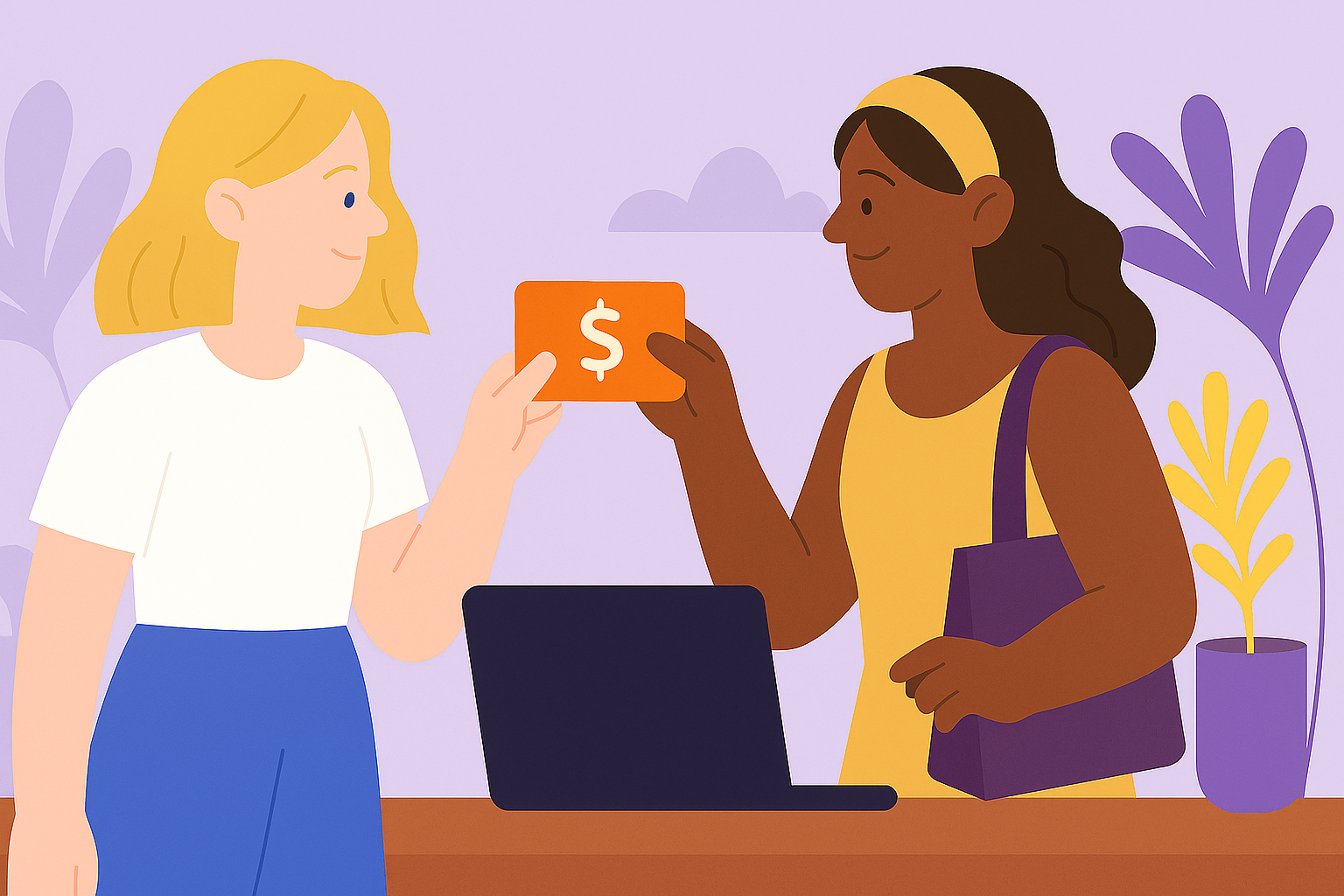.png)
Anyone enmeshed in internet culture within the last year or so has probably found themselves unexpectedly confronted by a conversation surrounding NFT art. These popular and somewhat controversial components of the digital economy have generated a lot of buzz and debate, with people arguing both for and against their relevance — along with certain individuals shelling out many hundreds if not thousands of dollars to own one or more of these digital assets.
A mounting number of celebrities and influencers are hopping on the bandwagon to expound on their importance and use them to create digital collectibles.
Whatever their ultimate future, NFT projects are showing themselves to be more than just a short-term trend. So what exactly are they, why do they matter, why have they caused such a fervor — and how do we anticipate the NFT community will impact the marketing landscape? Let’s explore.
Just What Is An NFT?
NFT stands for ‘Non-fungible token.’ In the digital sphere, that’s shorthand parlance for a file with specific coding that can’t be written over, replicated, or replaced. To better understand the concept of fungibility, think of something like a physical piece of currency — a ten-dollar bill, for instance. This can be easily changed out for another ten-dollar bill of equal worth. This makes the bill “fungible.”
However, if you used that ten-dollar bill to purchase a one-of-a-kind artisanal pottery jar, you have bought an item that is non-fungible. It cannot be replicated or reproduced.
NFT collectibles constitute a type of file that transfers and retains its unique data. An example is the code that represents an online image. It might be a .png, .jpeg, or .gif file. As a non-fungible cryptographic token, an NFT files becomes a digital asset. They function like bitcoin tokens that are backed by blockchain technology and are impossible to alter. Like a work of art, each NFT has its own unique value.
They are not interchangeable with other works of art in the same way money is. During the encryption process, an NFT is given a singular hash that sets it apart from any other NFT. So, although these assets are not physical products that can be shared or displayed, they represent a unique digital token the buyer has obtained that may have certain privileges associated with it.
Because they are so singular and represent their own exclusive entity, many brands in a range of industries are using this new form of digital artwork toward innovative ends. These brands — particularly brands with an inherently digital identity — are working to integrate NFTS into their marketing campaigns in compelling ways.
How The NFT Space Impact Influencer Marketing
NFT marketing strategies give you the ability to make unique online objects that can’t be changed or transformed. The coding on this digital art also comprises an unbreakable makeup that ties it to its respective NFT owners but can be transferred to someone else and programmed for a spectrum of functions — including providing royalties for the creator.
NFTs appeal to content creators and influencers because of the tokens’ ability to provide copyright on their intellectual property. As content creators develop imaginative memes, videos, and products, they are able to profit instantaneously by selling or licensing a particular NFT as part of their brand deals, rather than negotiating the use of their image for a specified duration.
NFTs easily function as collectors' items that allow their owners to commemorate a certain moment in time or set themselves apart as part of a brand’s larger narrative. But, depending on the price paid, they can also be used for a range of privileges and opportunities extending into the future.
Brands and creators are currently partnering to create pioneering new experiences for their audiences as technology becomes further incorporated into the customer journey.
For example, if fans of a particular brand purchase one of a series of an NFT collection at a particular date, that NFT may be used online or even in a gamified VR world to unlock certain offers, information, or experiences that nobody else in the fandom has access to. The possibilities are ever-expanding.
How Are Brands Creating An Effective NFT Community-Marketing Strategy
Marketing NFT perks can excite your followers. The way consumers experience a brand in real life or in a digital or virtual space is growing more porous and overlapping than ever before. Businesses of every size and variety have introduced some form of NFT development into their marketing strategy.
While some use NFTs as a way to demonstrate their philanthropy and pay it forward to their community, others use the NFT world as an opportunity to expand and invigorate their brand stories while availing themselves of new revenue streams. Whatever the angle, NFTs help these brands enrich their offerings, elevate their identities and move their business goals forward.
NFTs Can Be a Giveaway – You might choose to reward customers with the gift of an NFT, offering them a sense of ownership of your brand. Because the NFT is also tradable they can also treat it as a form of currency.
NFTs Can Serve as Collectibles – The biggest brands in the world may launch their own NFT lines that function as collectible cards, film moments, and other commemorative or limited edition tokens fans and collectors crave.
NFTs Aid in Authentication – Luxury brands and brands that launch limited edition products can use an NFT to serve as a certificate of authenticity for their products. A counterfeit product could never reproduce the same NFT, so the NFT associated with the original will validate its genuineness. Consequently, These limited editions now become even more desirable.
NFTs Can Launch a Promo – Customer engagement is critical, and an NFT provides the sense of occasion surrounding any event, be it a movie premier, anniversary sale, or product launch. If original NFTs were introduced as part of iconic events in history, like inaugurations, movie premiers, or building dedications, they might be worth an extraordinary amount today.
NFTs Let Celebrities Promote Their Personal Brands – With many athletes and celebrities already getting in on the NFT act, NFTs provide a great opportunity for these individuals to promote their image and projects and raise money for themselves or for charity.
NFTs Create Online Community-Building & Exclusive Events – Luxury brands, in particular, value NFTs for cultivating the digital scarcity that brings a limited number of people into a group. Owning the tokens creates a sense of belonging to an elite club.
NFTs Compliment the Video Games Industry – The gaming world and Virtual Reality can co-opt NFTs and allow players to unlock hidden levels or worlds they have the opportunity to explore.
When Influencers and Brands Join Forces Around NFTS
NFTs can play a valuable role in enhancing brand and influencer partnerships — actually solidifying an audience’s relationship with both. For instance, a brand and creator might collaborate to make a behind-the-scenes video that provides a glimpse into their production process or features the influencer using, discovering, or investigating a brand’s particular product or service. To reward devoted followers, NFT holders may receive advance or exclusive access to this content.
Other NFT influencer experiences might include livestream product launches, Q&A sessions with influencers, tutorials, or other events aimed specifically at NFT ticket holders that can either be advertised ahead of time or provided as a kind of surprise or thank you for the commitment demonstrated by a brand’s most loyal followers.
This members-only access in the NFT communities may play an increasing role as brands provide perks to particular customers — similar to a subscriber program or elite tier of any product package. The collectible nature of NFTs and the way they serve as a souvenir and a signature of a moment in time underscores their value to NFT collectors in the digital space.
They offer an additional revenue stream for brands wanting to capitalize on the excitement surrounding a particular campaign or movement. These also serve as advertisements themselves, forever highlighting the preeminence of a particular brand or their partnership with an influencer.
How to Excel with NFT Marketing by Partnering With NFT Influencers
With an NFT marketing strategy and NFT marketing services, it’s important to note that, while older generations tend to be more reticent, leery, or altogether indifferent toward NFTs, millennials and Gen Z are rapidly embracing the digital and crypto world and are more likely to engage in crypto-based transactions and investments.
For certain brands with a heavy digital or e-commerce emphasis, whose consumers and followers primarily engage with them online, it makes sense to partner with crypto influencers who specializes in the NFT space. This kind of brand partner can function as an exceptional NFT marketer.
Many of the biggest NFT influencers are, themselves, traders who are well versed in the ins and outs of the NFT market and who know how to market an NFT. They reach their audience through content specific to cryptocurrency and non-fungible tokens.
For brands who align with these kinds of figures, you get the added advantage of working with a creator who can capably break down complex crypto topics into easily digestible facts and how-to guidance often across different channels. With access to your target audiences, they make it possible for even the least informed and most novice crypto enthusiasts to follow and comprehend.
These influencers frequently give their audience NFT market news and insights on exciting new coins and tokens, along with the prevailing crypto trends. Where your NFT is concerned, they can also push the features and advantages a buyer can enjoy with the token or series of tokens you have developed.
Some influencers are NFT artists who themselves create a range of covetable tokens sold online. Many carved out a niche for themselves as sought-after digital artists and acquired a following long before NFTs took hold of the public imagination. These days, their audiences look to them for new collectible pieces, glimpses into their creative process, and information about their forthcoming releases.
As your brand searches out influencers who can help you inaugurate your NFT marketing efforts across various social media channels, you want to go after individuals who are familiar with how they work and are able to relay to their audience the excitement and directives surrounding an NFT offer or campaign.
The crypto landscape comes with a bevy of purchasing decisions that leave many people scratching their heads. For the layperson, there is still significant hesitancy and uncertainty about everything related to NFTs and crypto.
With an NFT creator who can explain the process and product, advocate for its benefits, and take prospective buyers or followers by the hand, you will have the advantage of an informed consumer base who feels confident in making their purchasing decision and showing their support for your brand and its offerings.
Looking Toward the Future of Marketing NFTs and NFT Marketplaces
At the moment, it is common wisdom among many NFT creators that an NFT is essentially only as useful as the community that surrounds it. Because of this, you and your influencer partners will want a reliable team to help you launch and promote your NFT project, so people see how it's an asset worth investing in. With the right story connected to it, you can get the traction in NFT sales you seek.
Above all, NFTs operate and thrive around the sense of community that brands and creators build while offering tokens that feel exclusive without being exclusionary. Once a creator has established a community that identifies with his or her values and interests, these followers are far more apt to trust them with how to invest their money.
And as the community invests their money in a token that is the emblem of your brand — you’ve just ignited the kind word of mouth around your company that ultimately creates a narrative of distinction, prestige, and growing visibility.


.png)


